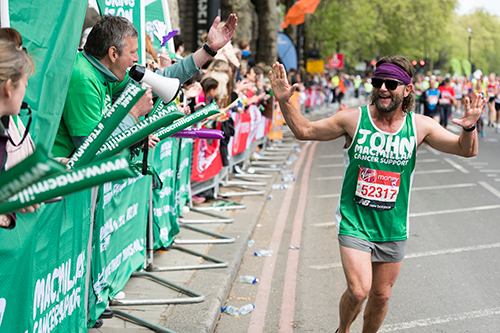Macmillan Cancer Support
Pioneering a counter-fraud strategy that has recovered £653,000 to date
Prior to 2015, Macmillan Cancer Support had no counter-fraud strategy or procedures in place, yet it was receiving growing numbers of complaints and allegations in relation to unpaid donations, bogus collections, unauthorised use of its logo and so on.
 The UK charity sector is estimated to lose around 5% of its total revenue to fraud each year, and for Macmillan, this means £5m is at risk.
The UK charity sector is estimated to lose around 5% of its total revenue to fraud each year, and for Macmillan, this means £5m is at risk.
So in 2015, the charity appointed a part-time counter-fraud manager to create a new process for tackling the backlog of existing allegations and any new ones. This involved creating a database for logging cases and tracking them to conclusions, as well as designing and implementing a consistent and organisation-wide fraud reporting process.
An investigation process was also devised that sought to recover fundraised amounts that had not found their way to the charity, leading to police action if the debts were not paid.
Two years later, a new civil recovery process was piloted to chase those outstanding debts that were not successfully recovered by either the investigation process or police action. Some 45 summons have now been issued and not one has been challenged.
And in 2019, the charity went even further, pioneering private criminal prosecutions in partnership with a specialist law firm. These have proved to be far more timely and effective than the traditional police route. A further benefit is that Macmillan’s investigation and legal costs are reimbursed out of central funds by the government.
On top of these new processes, the counter-fraud team which now comprises 1.8 full-time equivalents, has launched annual mandatory online fraud awareness training for all staff.
Going forward, the team plan to introduce “fraudits” to ensure that suppliers fulfil their contractual obligations and to try to recover funds if they do not. They also intend to carry out fraud risk reviews of key functions and consider potential irregularities in legacy income.
The counter-fraud function has undertaken 835 investigations since May 2015 and recovered £653,000 for the charity to date. It is now considered an income stream for the charity and Macmillan says it could easily be a blueprint for other charities to adopt.
Charity Awards judge Paul Streets said that fraud is a big issue for the sector and can be so harmful as to kill off small charities. He praised Macmillan’s willingness to share the model as widely as possible.
Kris Murali said Macmillan was effectively addressing a particular chronic issue, and Sharika Sharma described the work as “very impressive”.
CC Reg no. 261017
